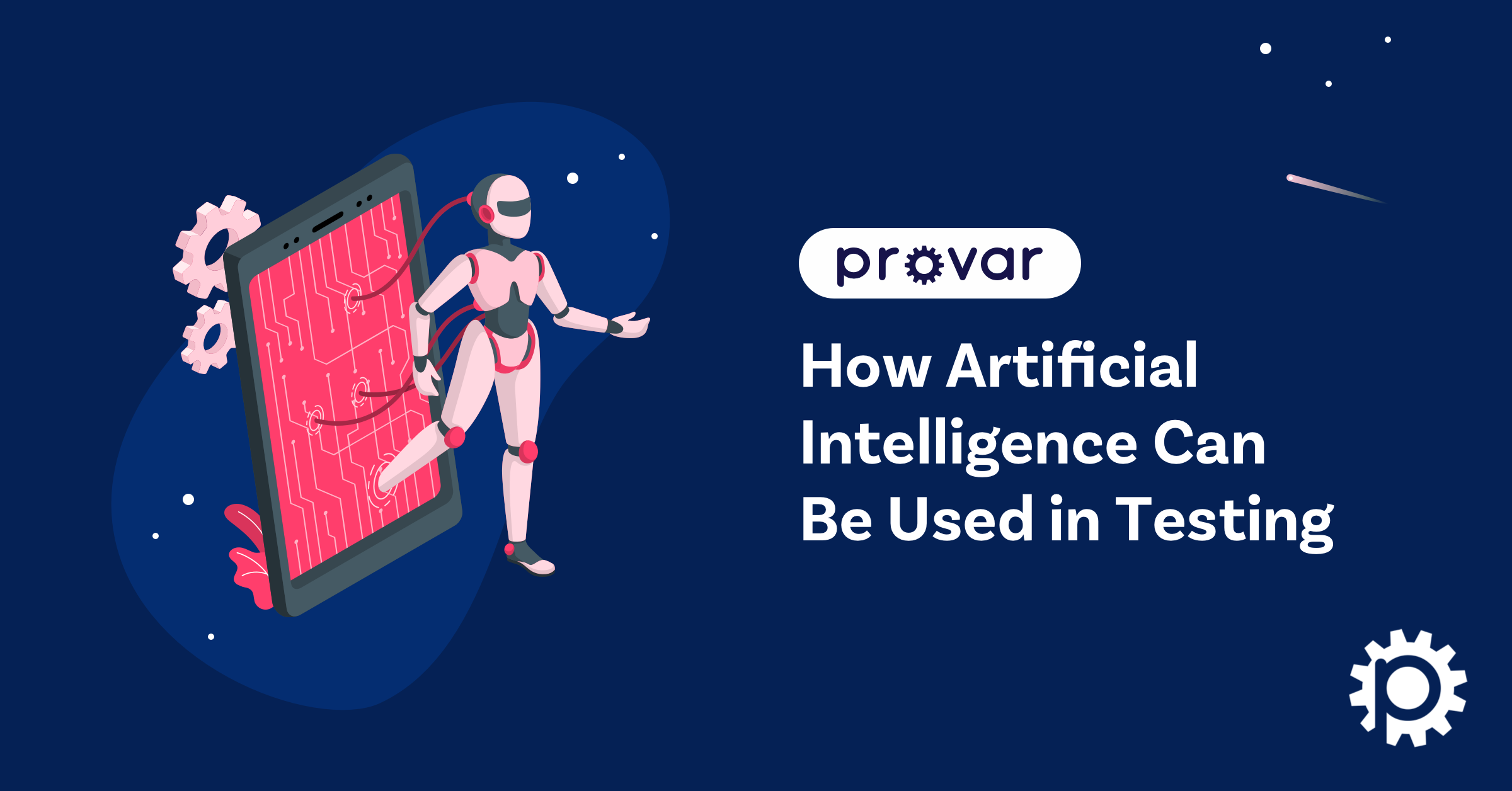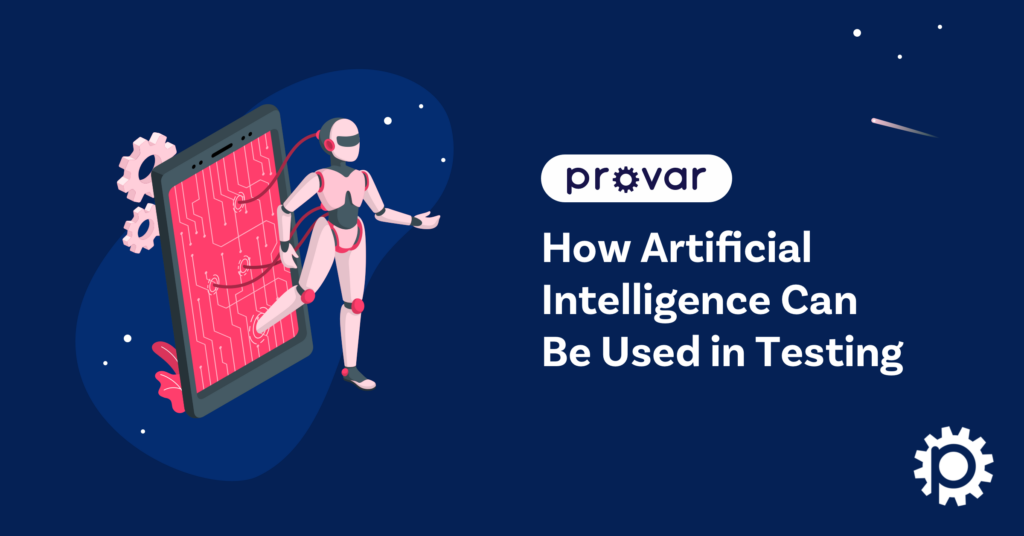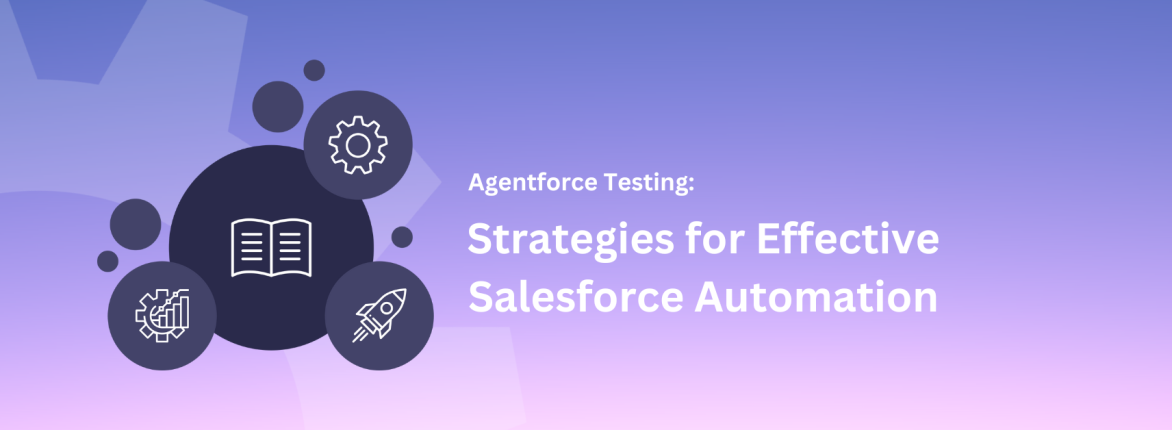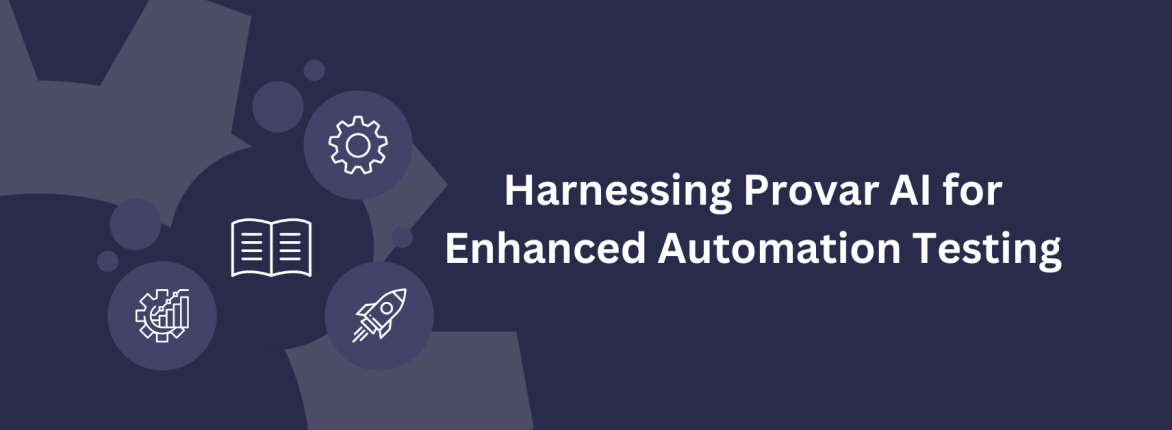Artificial intelligence (AI) has emerged as a powerful force of change. New applications for AI arise daily, empowering organizations to optimize operations in exciting new ways.
QA teams can leverage AI in software and Salesforce testing to increase efficiency, enhance accuracy, and accelerate innovation. But with technology moving so quickly, it can be difficult to discern what AI to use and how to use it. While we can’t predict where our technology will take us, we can seek to understand better. At Provar, that means educating ourselves on embracing these new tools to support and streamline our processes.
In this blog, we’ll focus on all things AI in testing. We’ll explain what AI is (and what it isn’t), how to use it in Salesforce testing, and how Provar integrates AI and intelligent capabilities across its solutions.
What is AI?
“artificial intelligence” was coined in 1955 by Stanford Professor John McCarthy. A renowned computer scientist, McCarthy, defined AI as “the science and engineering of making intelligent machines.” Today, most definitions of AI explain it as a subset of computer science. Merriam-Webster defines AI as:
1. A branch of computer science dealing with the simulation of intelligent behavior in computers
2. The capability of a machine to imitate intelligent human behavior
AI systems can perform tasks commonly associated with human cognitive functions — including playing games, identifying patterns, interpreting speech, and mimicking decision-making.
How AI Can Be Used in Salesforce Testing?
Generative AI
Generative AI involves training models to produce new data analogous to the training data. This process includes using techniques such as variational autoencoders (VAEs) and generative adversarial networks (GANs). Generative AI is typically employed in software testing to generate test data and test cases.
Reinforcement AI
Reinforcement AI, or reinforcement learning, can be used by QA teams in testing strategies, test case execution, mutation testing, and test-driven development. Data drives these adaptive systems and can help prioritize testing efforts and improve performance by learning from interactions within the testing environment.
Conversational AI
Conversational AI has been getting much attention lately, thanks to ChatGPT and other chatbots. QA teams can use conversational AI to build virtual assistants that facilitate team communication, execute test cases, report bugs, and generate test results — enhancing efficiency and streamlining processes.
Computer Vision
Computer vision systems are widely used in testing, specifically for visual test automation. This AI can analyze screenshots and videos, detect visual defects, compare images, and predict outcomes. QA teams and testers can use computer vision in regression testing to enhance the user experience.
Natural Language Processing (NLP)
Natural Language Processing (NLP) is widely used in automated testing and software development. NLP systems can analyze vast volumes of data quickly and efficiently, helping QA teams make more informed decisions. With the help of NLP systems, testing teams can generate test cases and analyze test reports and user feedback.
Expert Systems
AI systems that imitate human experts in specific areas are called expert systems. QA teams can use expert systems to automate many of their decision-making processes, including prioritization, recommendations, and debugging. Like other AI, expert systems are only as good as the data they analyze — so access to accurate information is crucial.
Robotics
Robotics AI refers to the creation of and physical interaction with robots to perform tasks without further intervention. QA teams can use robotics to test devices — including hardware products and mobile applications physically. Robots can mimic user interactions, perform simple tasks, and measure responses.
How Provar is Using Intelligent Capabilities?
Provar has long harnessed AI and intelligence in its solutions and continues to improve as new advancements come about. Though our solutions don’t use machine learning, their magic comes from algorithms created based on the information within Salesforce’s metadata.
Provar Automation, for instance, offers intelligent test and data generation that utilizes an org’s metadata to generate relevant and unique tests for both UI and API testing. It automatically recognizes what type of web page is being tested, whether generic HTML, Visualforce, Lightning or a combination. We don’t just recognize the type of element someone wants to test. Still, we also know what elements are already on the page from the available metadata and understand the most likely interaction for that type of element, be it a text field, display text, or a button or link. We can also recognize when it’s changed and suggest you update your element mapping.
Another example occurs when building test cases in Test Builder. Provar Automation automatically inserts the required page, tab, and component navigation steps and describes them to let users focus on the components they want to test.
Finally, we recently launched our Level 2 DevOps integration that automatically determines which test cases you need to execute based on the changes being deployed. This can also highlight coverage gaps in your testing. This intelligent capability does not use a third-party AI but doesn’t need to when the metadata is available.
Here are some areas where Provar uses its AI today.
Generative AI
Test scenario creation from user story text (exists today across our products), and unit test generation for apex and flows and root cause analysis (implementing or improving with AI tools and partners)
NLP
Test descriptors (exist today across our products), and translation and test summary (implementing or improving with AI tools and partners)
Expert Systems
Execution optimization (exists today across our products), test analytics, and predictive testing and analysis (implementing or improving with AI tools and partners)
Conclusion
While Provar testing solutions rely primarily on Salesforce metadata to make our automated testing magic, the Provar team stays curious about how we can harness the power of artificial intelligence to improve Provar products and our customers’ Salesforce experiences.
Interested in continuing the AI conversation? The University of Provar just released a new course, “Introduction to AI in Software Quality.” Be sure to let us know what you think!










